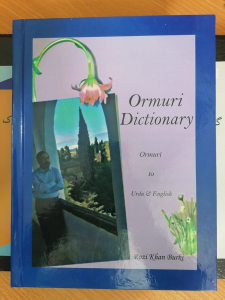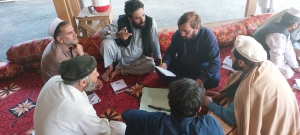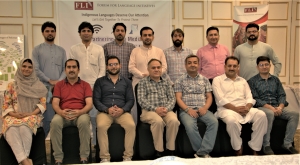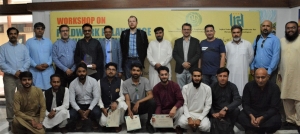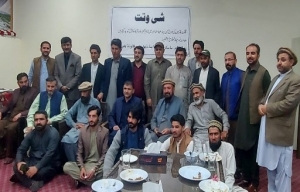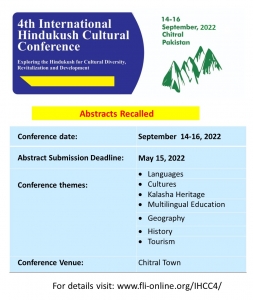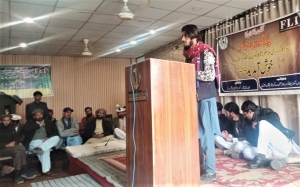FLI recently published three more books in different indigenous languages of northern Pakistan; Ormuri, Gawarbati and Dameli. Rozi Khan Burki, a pioneer Ormuri researcher has compiled a dictionary in his mother tongue, Ormuri. This is the third book FLI published in the language and the second book which has been authored by the same writer. Earlier, the organization published a poetry book in the language which was written by Rozi Khan.
The book in the Gawarbati language has been authored by also a senior researcher of this language, Mullah Adina Shah. This grammar book is hoped to facilitate new writers from the community. Mullah Shah had brought up a hand written dictionary in his language even before the onset of computer writing, now reportedly being reproduced under the auspices of a Peshawar University project. So far, FLI has published half a dozen books in this language.
The third book, FLI published has been compiled by Hayat Muhammad in his native language, Dameli. He has collected folktales of his language and produced with the Urdu translation. The book is among many other literary materials FLI has been publishing in this language since 2016. The author, Hayat Muhammad, one of FLI trainees has been tirelessly working for strengthening of his language by producing literature. The Dameli language is too being focused by FLI especially for literature development.
We are committed to strengthening our indigenous languages by facilitating the researchers in various ways including provision of training, technical support and financial assistance. The aim of publishing books in indigenous languages is not only to document the indigenous wisdom of the respective culture but also to revive the languages making them relevant in the contemporary world.

